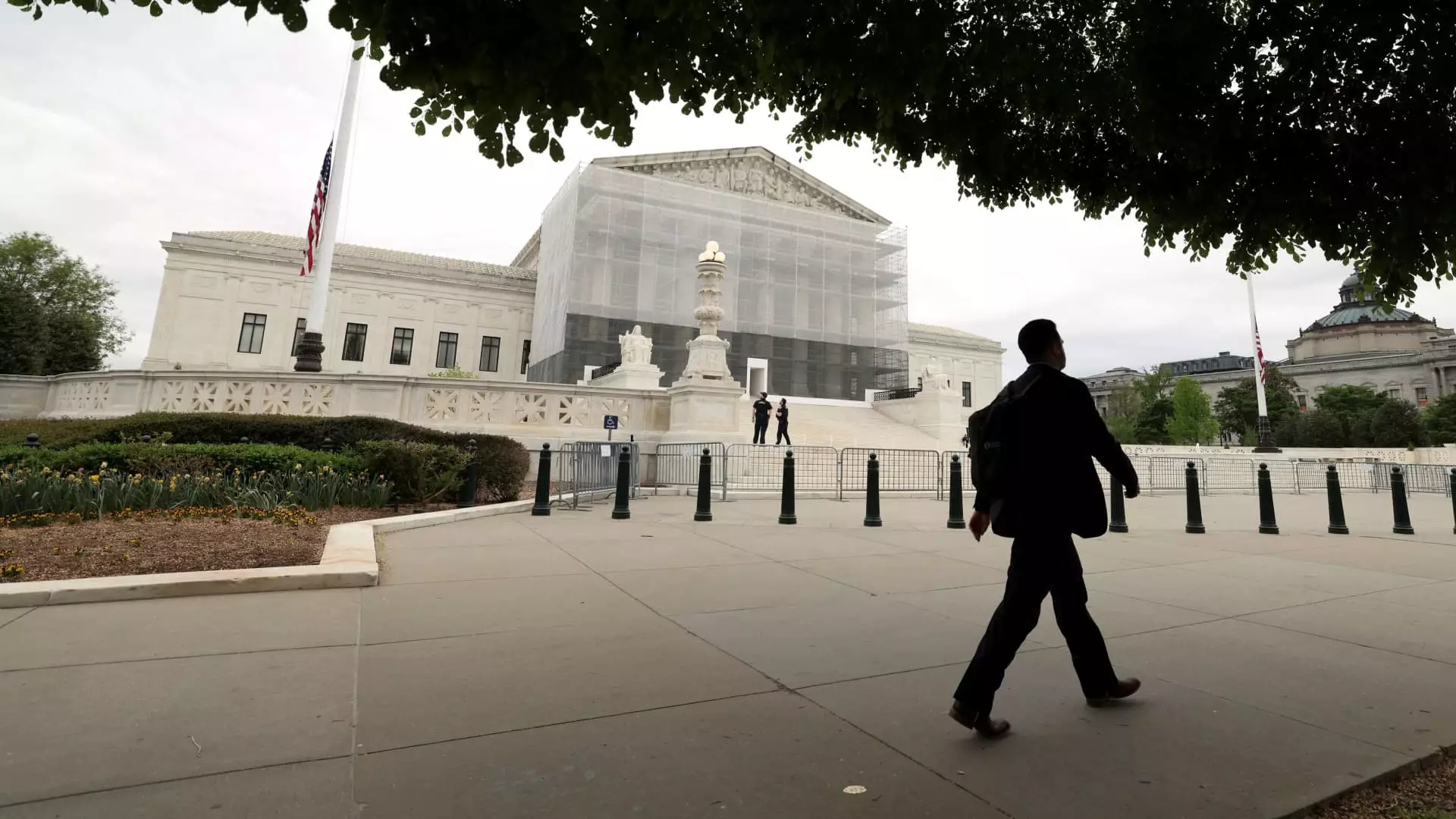On a recent Friday, the Supreme Court of the United States rendered a pivotal decision that highlights the delicate balance between national security and the rights of individuals facing deportation. By siding with Venezuelan nationals against the harsh measures of the Trump administration, the court shed light on a crucial oversight in how immigration laws were applied, particularly under the dubious Alien Enemies Act (AEA). This ruling is not merely about the future of a few individuals; it symbolizes an urgent call for a humane approach in the complex narrative of immigration policy.
The court’s decision of 7-2 sent ripples through the political landscape, emphasizing that basic due process must prevail even in matters of national security. After all, deportation is not just a bureaucratic process but an act that has devastating implications for individuals and families. The Trump administration’s conduct—providing detainees with a mere 24 hours’ notice before their removal—was found to be woefully insufficient. The justices were unequivocal: “Devoid of information about how to exercise due process rights to contest that removal, surely does not pass muster.”
Far More Than Statistics
Deportations often invoke fear and indignation, but too frequently, the complexities behind them get lost in statistical summaries. This recent case, which involved members of the Venezuelan gang Tren de Aragua, exemplifies a muddled confluence of legal jargon and human lives. The administration’s approach to invoking the AEA and its claim that members of this gang posed an “invasion” threat reflected an era of heightened fear mongering rather than thoughtful policy-making.
The dissenting opinions from Justices Samuel Alito and Clarence Thomas signify a deeper ideological schism within the court—one that pits a rigid interpretation of law against the more fluid and compassionate understanding of human rights. They dismissed claims of imminent danger in the removal of these detainees as exaggerated, which prompts a vital question: Shouldn’t the burden of proof and the urgency for humane treatment rest on those wielding the power of deportation?
This ruling emphasizes an unsettling reality: government processes can easily devolve into instruments of oppression when they lack transparency and compassion. When a government labels individuals as threats based purely on their origin and affiliations, it risks reducing human beings to mere statistics—a dangerous precedent that can haunt any society.
The Broader Implications for Immigration Policy
The Supreme Court’s ruling serves as a critical reminder that, irrespective of partisan beliefs, the treatment of immigrants must align with constitutional protections. The AEA, designed in a different historical context, has become a tool for expedient removals devoid of proper legal scrutiny. This case has ignited discussions about the outdated nature of some laws and how they need to evolve to reflect contemporary values surrounding human rights.
In acknowledging the “particularly weighty” interests of the Venezuelan nationals, the court opened a dialogue that could influence future legislation. While there is no question that national security remains paramount, it should not come at the expense of basic human rights. The government, in its pursuit of security, must not dismantle the very fabric of due process that defines American democracy.
It is imperative for lower courts to expedite decisions in cases involving national security such as this one, yet the Supreme Court’s emphasis on thorough judicial processes is vital. The ruling does not absolve the government of its concerns regarding safety; rather, it insists that any action taken must be just, fair, and transparent.
A broken immigration system endangers American values as much as it threatens the communities it affects. The implications of this ruling extend far beyond the immediate situation, calling for a re-evaluation of how the law is applied to those marginalized by their circumstances. One cannot help but ponder: How many lives will be impacted by a system that prioritizes speed over justice?
The winds of change are evident, and the judiciary must act as a check on government overreach while fostering an environment that honors the dignity of every individual, irrespective of their origins or affiliations. In times of uncertainty, it is our duty to advocate for a process that upholds the ideals upon which this nation was founded.


Leave a Reply